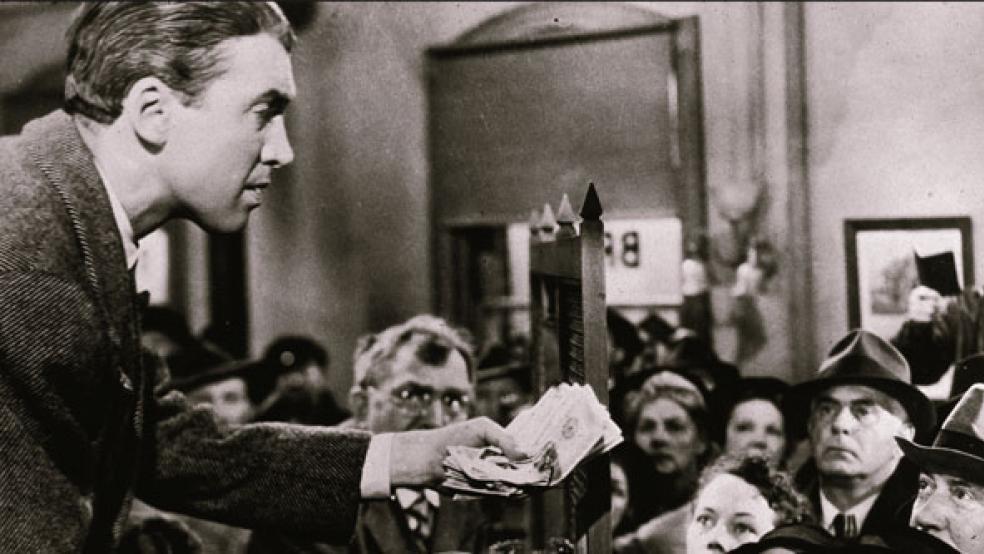If large banks around the country were hoping that “Bank Transfer Day” on Nov. 5 was just a one-time affair, well, there’s some bad news.
A consulting firm in Connecticut surveyed 5,672 retail bank customers nationwide and produced a report this week predicting that over the next 12 months, the 10 largest banks in the U.S. stand to lose about $185 billion in deposits as frustrated customers move their money to community banks and credit unions.
The real eye-opener? The survey underpinning the report was conducted in July – months before the Occupy Wall Street protest movement caught fire. It was also long before a small business owner in California named Kristen Christian, frustrated by Bank of America’s now-abandoned decision to charge customers a fee to use their debit cards, launched a grass roots effort to convince people to move their money out of large banks and dubbed November 5 Bank Transfer Day.
Stephen Beck, founder and managing partner of cg42, the consultancy that produced the study, said that the results show that there was an existing current of anger toward large financial institutions just waiting for the Occupy protesters and Bank Transfer Day to tap in. “It was exacerbated by the protests, but these frustrations existed well before that,” Beck says. “What we are now seeing is that consumers are being ever more vocal about it and at the end of the day are starting to let their frustrations be known by making real change.”
How much money was moved from big banks to community banks and credit unions on the official Bank Transfer Day is unclear, though estimates run into the billions of dollars. But in many ways, it doesn’t matter, because data suggests that a migration of deposits was already under way.
The loss of $185 billion in deposits would be a blow to the top 10 banks – though not a particularly large one.
But it would signal a shift for community banks, which have been steadily losing customers to the big boys.
Last week, the Credit Union National Association said a survey of its members indicated that between September 29—the day Bank of America announced its debit card fee—and the end of October, 650,000 people had opened new credit union accounts.
Community banks have also benefited from consumers’ anger. The Independent Community Bankers of America (IBCA) trade group surveyed its membership in mid-October and found that 60% reported an increase in account openings by customers citing frustrations with large banks. The organization also reported that visits to its online community bank locator were up six-fold in the past month.
To be clear, the loss of $185 billion in deposits would be a blow to the top 10 banks, but not a particularly large one. It wouldn’t go very far toward reducing the overall concentration of deposits at the country’s largest institutions. It would, however, signal a reversal of the recent trend. The FDIC’s Summary of Deposit numbers released in October showed for the past several years, community banks have continued to lose deposit share to larger institutions. There are currently 7,522 FDIC-insured depository institutions in the U.S. Of those, exactly 107 banks and thrifts have assets of more than $10 billion. Those 107 institutions hold more than 72% of total deposits in the U.S.
But small banks are hopeful that this is the beginning of a new trend.
Camden R. Fine, president and CEO of the IBCA says that the seemingly constant drumbeat of stories about big banks taking advantage of consumers and entering into huge legal settlements with federal regulators will only help small banks increase their deposit share. “As cynicism deepens, people are going to seek out local financial providers – people who they can look in their eyes when they are doing business with them,” says Fine. “I think the deposit outflow from some of the big banks to community banks will continue.”
Big-bank representatives say that the nation’s largest financial firms have heard the concerns of consumers. As evidence, they cite the decision by Bank of America (BAC) to abandon its plan for debit card fees and the decision of many other large banks not to impose them at all. “Banks want your business. It is a competitive marketplace and they are listening to their customers,” says Elise Brooks, communications director for the Financial Services Rountable, a trade group whose membership is limited to 100 of the largest financial services companies in the nation.
But Beck of cg42, says that in the months since his survey was completed, he has seen little to suggest that attitudes are changing in the big banks’ favor. “We found $185 billion in deposits at risk,” he says, “but we believe the number would be higher if the survey was fielded today





